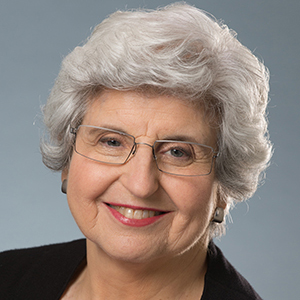Statement of Jocelyn Frye, President of the National Partnership for Women & Families WASHINGTON, D.C. – June 28, 2024 – Today, the Supreme Court upended sound, longstanding, legal precedent that has provided protections for everyday people for decades...

Time for Concrete Action to Stop Discrimination Against Pregnant Women and Caregivers
Today, I was honored to join a distinguished group of scholars, advocates, government officials, and legal and policy experts to discuss an issue of critical importance to working women and families in this country: discrimination based on pregnancy and caregiving.
The meeting was held by the U.S. Equal Employment Opportunity Commission (EEOC), and it focused on the latest research on these persistent forms of discrimination, enforcement of laws that prohibit discrimination, and actions employers and government officials can take to better protect pregnant workers, caregivers and families. It was on this last point that I focused my remarks.
The National Partnership has long been an advocate for pregnant women and caregivers in the workplace. We worked to pass the Pregnancy Discrimination Act, the Family and Medical Leave Act (FMLA) and many other critical laws, and we continue fighting for anti-discrimination laws and policies today.
 With good reason. Sadly, discrimination against pregnant women and caregivers is on the rise. So today, we urged the administration to aggressively address the issue by creating a multi-agency task force that can address critical gaps in research, outreach, education, policy development and enforcement.
With good reason. Sadly, discrimination against pregnant women and caregivers is on the rise. So today, we urged the administration to aggressively address the issue by creating a multi-agency task force that can address critical gaps in research, outreach, education, policy development and enforcement.
This complex and pernicious type of discrimination needs a well-coordinated and comprehensive response. And the EEOC, U.S. Department of Labor (DOL), U.S. Department of Justice (DOJ) and the Office of Personnel Management (OPM) can all take concrete steps to strengthen their anti-discrimination work. Today’s EEOC meeting shows a commendable commitment to doing so.
The National Partnership made these specific recommendations:
- EEOC should provide guidance and best practices for avoiding discrimination against pregnant workers and caregivers, in addition to training investigators to better identify this kind of discrimination, utilizing its own authority to file charges, enforcing recent caregiver guidance and participating in court cases as subject-matter experts.
- DOL’s Office of Federal Contract Compliance Programs should issue specific regulations and guidance on sex discrimination, and it should train investigators to identify both discrimination against pregnant workers and caregivers and violations of the FMLA.
- DOL’s Wage & Hour Division receives thousands of FMLA complaints each year. More resources should be dedicated to enforcing this essential law. In addition, newly-updated surveys of workers and employers on the FMLA should be implemented, and data from past surveys should be carefully analyzed to assess needs.
- We applaud the recent efforts of DOL Secretary Hilda Solis and the first lady to raise awareness about the FMLA’s military leave provisions. However, Bush-era regulations approved in 2008 made it more difficult for employees to take leave. These changes should be rescinded.
- DOL should also enforce the new right to breaks for nursing mothers, because many hourly workers remain unaware of it.
- DOJ enforces state and local government employers’ nondiscrimination obligations. It should prioritize action in pregnancy and caregiver discrimination cases.
- And finally, OPM should ensure that the federal government is a model employer by implementing family friendly protections such as paid parental leave.
Working women and caregivers depend on equal opportunity in the workplace, and their families depend on them. We applaud the EEOC for bringing attention to this important issue, and we look forward to continuing to work with the administration to put an end to discrimination that threatens the economic security of our nation’s families. No worker should have to risk adverse treatment, lost income or loss of a job due to pregnancy, childbirth or family caregiving responsibilities.
Read my full written and submitted testimony here.

